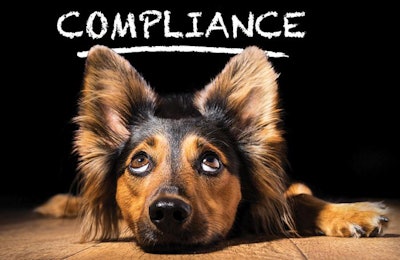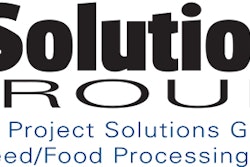
Food Safety Modernization Act (FSMA) regulations have begun to take effect for many pet food companies, but industry representatives say federal regulatory and budgetary uncertainties pose challenges.
As of November 17, 2016, large and medium-sized pet food makers in the United States needed to comply with the first set of FSMA rules, the current good manufacturing practices (CGMP) element. Although FSMA has not yet come into effect for all companies, many pet food companies are addressing FSMA’s requirements for CGMPs and preventive controls.
“Overall, companies have embraced the rules and are working diligently to abide by the rules,” said Leah Wilkinson, vice president of legislative, regulatory and state affairs for the American Feed Industry Association (AFIA).
Lack of FDA guidance and funds raises problems
However, uncertainties about United States Food and Drug Administration (FDA) guidance and funding may make planning for the future difficult.
“The most problematic issue is understanding the investigator’s expectations,” said Wilkinson. “In addition, the industry is patiently waiting for FDA to release several guidance documents for the animal food industry. AFIA continues to discuss this with FDA, as well as congressional staff. Without these documents, it is difficult for companies to be fully prepared and compliant with the regulations.”
Even after a company does make an attempt to understand regulators’ expectations, there’s no guarantee there will be funding for those pet food manufacturing facility inspectors. President Donald Trump’s proposed budget calls for a 31 percent reduction in funding for FDA, although this cut may be compensated for by proposed fees for pharmaceutical companies.
The Pet Food Institute is paying attention to the proposed budget and its repercussions on pet food safety.
“A consistent challenge has been ensuring appropriated FDA funding levels that sufficiently provide federal and state regulators, the latter of whom will shoulder much of FSMA compliance and enforcement responsibilities, with the necessary training,” said Mary Emma Young, director of communications for the Pet Food Institute. “This will help provide an informed, transparent and predictable regulatory environment as federal and state agencies carry out their oversight duties. We have advocated for full funding in this regard, and are closely monitoring the FY18 budget process as it relates to the FDA in this regard.”
Tools to help pet food industry meet FSMA requirements
Whatever the future may hold for FDA’s budget and guidance documents, both PFI and AFIA continue to advocate for the pet food industry. The two organization also have training tools to help pet food companies meet FSMA’s mandates.
“We [PFI] participated in the Food Safety Preventive Controls Alliance, which developed the curriculum for training federal inspectors and industry food safety officials alike, and are helping to train lead instructors and preventive control quality instructors,” said Young. “We also have issued two open letters to all pet food makers urging them to understand their obligations under FSMA and prepare for their compliance deadlines accordingly.”
According to WIlkinson, “AFIA has provided its members with a number of tools to assist companies to implement FSMA, such as a sample animal food safety plan and qualified individual training. In addition, AFIA’s foundation, the Institute for Feed Education and Research, along with the National Grain and Feed Association's foundation, funded a project from the University of Minnesota to create a tool to assist firms with developing a hazard analysis.”
Preparing pet food facilities to meet FSMA standards
Once pet food professionals understand the stipulations of FSMA, they may find that their facilities need upgrading to meet FSMA’s requirements. To help companies with this process, pet food extrusion machine manufacturer Extru-Tech created 1 Solution Group. So far, 1 Solution Group has worked with at least nine companies to achieve FSMA compliance, said Rachel Ulreich of Extru-Tech.
When retrofitting old plants to meet FSMA guidelines, human error tends to be the most common source of problems, she said. Adapting to FSMA has been a paradigm shift for many companies. Going from the “way we have always done it” to “the way we should be doing it today” can be a hurdle.
Regardless of their efforts, pet food manufacturers still face the rigorous standard set by FSMA of zero-tolerance for Salmonella, which is practically impossible to achieve, she said. If regulators were to vigorously enforce this rule, the cost of pet food production would skyrocket.
Ultimately, overcoming the difficulties of FSMA proved to be a learning experience for Extru-Tech that ended up benefiting the company, Ulreich said. The company had to validate that its machines could control pathogens. In doing so, the company gained experience that gave it a technical advantage in the market place.
Similarly, although FSMA challenges pet food companies, perhaps it may also prove to make the industry stronger as more companies meet the stringent requirements.
Read more on pet food safety and quality
https://www.petfoodindustry.com/safety-quality















